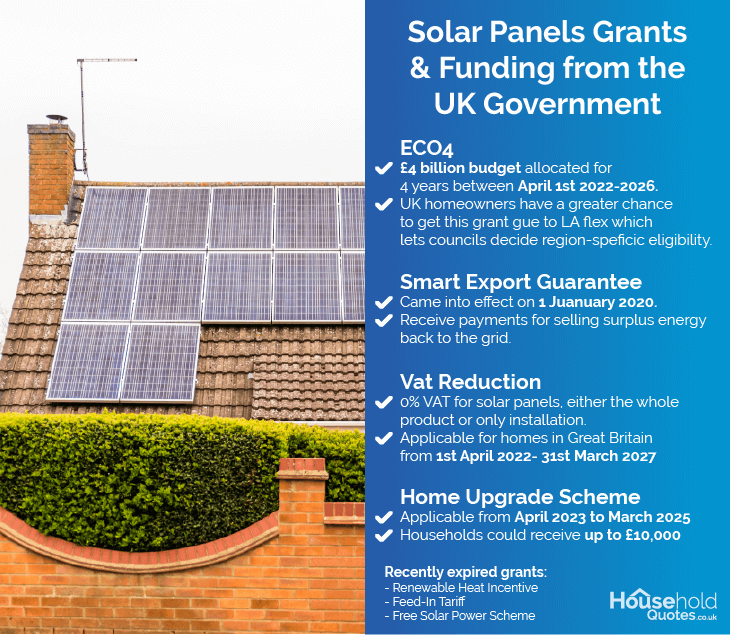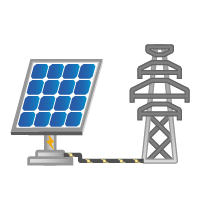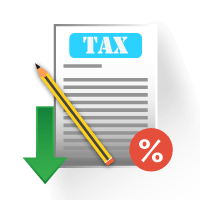Answer these simple questions and we will find you the BEST prices
Which type of solar quotes do you need?
It only takes 30 seconds
100% free with no obligation

Get up to 4 quotes by filling in only 1 quick form

Compare quotes and find yourself the best deal

Increase the value of your home by installing solar panels
- Householdquotes.co.uk
- Solar Panels
- Solar Panel Grants
Solar Panel Grants & Funding from the UK Government 2025


- ECO4: This UK solar panel grant can provide free solar panels for those households that fulfil specific eligibility requirements.
- Welsh Government Warm Homes Nest Scheme: This solar panel grant also raises the possibility for households to receive free solar panels in Wales.
- Home Energy Scotland Grant and Loan Schemes: Households could receive up to £6,000.
- Home Upgrade Grant: Households could receive up to £10,000.
- Smart Export Guarantee: through this scheme, households can export back to the grid energy and earn 1p – 24p per kWh of excess electricity produced by solar panels. This can potentially result in annual earnings of £735 for a 4kW solar panel system.
- Zero VAT on solar panels: the amount of savings will depend on the solar panel's cost.
- Solar Together: savings vary, ranging from 10% to 25%.
In recent years, solar energy has gained significant traction in the UK, emerging as a primary alternative to traditional fossil fuels such as gas or oil. This is due, among other factors, to its unlimited and eco-friendly nature.
The UK government has played an important role in promoting solar energy by launching generous grants for solar panels to incentivise homeowners across the country in light of the current solar panel costs in the UK.
This article will provide an overview of the current grants for solar panels available in the UK, including those that have recently expired, their application process, requirements, and potential cost savings.
Are you intrigued by the potential benefits of solar panel grants in the UK? Are you still pondering the question, "Should I get solar panels in the UK?" Fear not, as HouseHold Quotes is here to help! We can guide you through the various options available, sparing you from the stress of doing the hard work of spending hours researching all of the possibilities by yourself.
Using our free and non-binding service, we can offer you up to 4 quotes from our trusted network of suppliers. Simply click the link below and complete our short 30-second form to get started:
- Quotes from local installers
- Payment by finance available
- Save up to £915 per year
It only takes 30 seconds

- Are there government grants for solar panels available in the UK?
- Energy Company Obligation (ECO4) Scheme
- Home Upgrade Grant (HUG2)
- Smart Export Guarantee (SEG)
- Zero VAT on solar panels
- Solar Together
- Recently expired: Domestic RHI
- Recently expired: Feed-In Tariff (FIT)
- Recently expired: Free Solar Panel Scheme
- Save money on getting solar panels for your UK household
- FAQ
Are there government grants for solar panels available in the UK?
In light of the current climate crisis, the UK government has committed to reaching carbon neutrality by the year 2050 as part of its Net Zero Strategy. This ambitious target has been accompanied by the launching of various government solar panel funding initiatives.
As of January 2025, two main UK government solar panel grants are ongoing:
- Energy Company Obligation (ECO4) Scheme
- Home Upgrade Grant (HUG2)
Energy Company Obligation (ECO4) Scheme

The ECO4 solar panel grant was launched in April 2022, replacing its predecessor the ECO3, and is due to close in March 2026. For the launching of this solar panel grant, the UK government has put forward funding of 4 billion pounds to enhance the Energy Performance Certificate (EPC) rating of low-income households to reduce carbon emissions.
This government grant for solar panels is estimated to reduce the energy bills of thousands of eligible low-income households, reducing the average energy bill by around £290, even for those less efficient homes, saving as much as £1,600 per year.
The ECO scheme operates by imposing a Home Heating Cost Reduction Obligation (HHCRO) on medium and large energy suppliers. Under HHCRO, suppliers are required to promote measures that enhance the capacity of low-income, fuel-poor, and vulnerable households to heat their homes. These measures include actions that lead to reduced energy consumption, such as installing insulation or upgrading heating systems.
The ECO4 grant will also allow households to modernise their inefficient heating systems with eco-friendly alternatives such as solar PV panels. What is more, the introduction of LA Flex means that a greater number of individuals will now qualify for the ECO4 solar panel grant.
Eligibility:
- Your house must have an EPC rating of E or below.
- You must be receiving one or multiple of the following benefits: Universal Credit, Income Support, Pension Credit, Housing Benefit, or Child Tax Credit.
Furthermore, here’s a step-by-step summary of what you’ll have to do to apply for the ECO4 solar panel grant. How to apply:
- Check your eligibility.
- Find an installer.
- Get a free assessment.
- Complete the application form.
- Wait for approval and once this is done, schedule an installation appointment.
Interested in the ECO4 solar panel grant but find yourself overwhelmed by the list of requirements to be eligible and the steps to apply? Luckily, here at Household Quotes, we’re happy to help you connect with professionals in the field that can help you through the tedious bureaucratic process of applying for solar panel grants.
By taking advantage of our service, we can do the hard work of searching for local solar panel installers that can assess your circumstances and offer you tailored advice, instead of spending countless hours of your time contacting and searching for installers yourself.
Simply click the link below, fill in our short 30-second online form and receive up to 4 completely free and non-obligatory quotes from our trusted suppliers:
- Quotes from local installers
- Payment by finance available
- Save up to £915 per year
It only takes 30 seconds

Home Upgrade Grant (HUG2)

The Home Upgrade Grant (HUG2) can provide up to £10,000 for the installation of a solar power system and other energy-saving improvements for low-income households in England with an EPC rating of between D and G.
Eligibility:
- Low-income households in England with an EPC rating ranging from D to G.
- Available for off the gas grid dwellings.
- Privately rented properties can also be eligible, however, landlords must contribute one-third of the total cost of any upgrades.
To apply for the HUG2 solar panel grant you must complete the following steps:
- Check if you’re eligible.
- Submit your application form, which can be either online or through your local energy advice provider.
- Once your application is submitted, a local energy assessor will visit your home to assess your eligibility and discuss the most suitable improvements.
- Once your application has been approved, you will receive a grant to cover the cost of the work.
Before exploring the other available schemes and grants in the UK, it's crucial to emphasize the importance of selecting the appropriate solar panels to maximize savings through solar panel funding. Avoid applying grants to substandard panels or those that don't suit your home's needs.
Smart Export Guarantee (SEG)

The Smart Export Guarantee (SEG) is a government-backed scheme that was implemented on January 1, 2020, and is still ongoing. It is worth noting that the SEG is a government-supported scheme, not a direct government grant, unlike the ECO4 and HUG2.
Moreover, this scheme requires energy suppliers to pay their customers for any excess electricity they export back to the grid. There’s a standard SEG tariff rate that all energy suppliers must offer to their customers, with this tariff currently being set at 5.5p per kilowatt-hour for excess electricity exported back to the grid.
It is now mandatory for all licensed energy suppliers to provide an export tariff to their customers. Suppliers with more than 150,000 customers are required to offer a tariff, while those with fewer customers can choose to participate voluntarily.
Through this scheme, households can export back to the grid energy and earn between 1 to 24p per kWh of excess electricity from their solar panel battery storage. Having said this, it’s important to note that this rate will depend on your energy supplier.
Taking advantage of this scheme can potentially result in annual earnings of £735 taking into account an avergae 4kW solar panel system. Consult a local solar engineer to calculate earnings for 5kW or 12kW solar panels or a 6kW solar system with battery in the UK.
To be eligible for the SEG, the following criteria must apply:
- Must have a solar panel system with up to 5MW of capacity.
- Your house must have a smart meter installed to measure the exports of excess solar energy.
To apply for this solar panel scheme, applicants must follow these steps:
- Firstly, check if you’re eligible.
- If you’re eligible, you must then find an SEG Licensee, which is an electricity supplier authorised to offer an SEG tariff. It’s important to note that each licensee has its specific application process that you must follow.
- Gather the following documents: A smart meter or half-hourly export meter reading, MCS certification (or equivalent), proof of ownership of the solar panel system, and the application form from your chosen SEG licensee.
- Complete and submit your application form.
- Once your application is approved, you will start receiving payments for your exported electricity.
Before applying for SEG tariffs, it's important to choose an energy-efficient and tailored solar panel system that suits your home's needs. This will ensure that you save money from the start and avoid applying for solar panel grants for unsuitable panels.
Zero VAT on solar panels

As of April 2022 onwards, eligible homes in the UK will be able to benefit from this government-backed solar panel scheme on the materials and the installation of energy-efficient mechanisms.
This means that those interested in solar panels for their homes can enjoy VAT-free solar panels, including integrated solar panels, making the option of switching to more environmentally-friendly energy sources much more attractive. The VAT reduction also applies to solar energy storage options, so you can also save on installing one of the best solar batteries in the UK. Taking advantage of this solar panel scheme will allow households to save more than £1,000 on installation and £300 annually on their energy bills.
Nevertheless, it is important to note that this VAT-free period is temporary and cannot exceed more than five years. After this time, the VAT rate will go back to the standard 5%.
Having said this, it is important to take advantage of this scheme before the VAT-free period expires. To be eligible for the 0% VAT rate, your home and new installation must meet several requirements, among them:
- The installation and the product must be done together.
- While it is also possible to install other goods or services such as insulation, the main focus of the work must be on energy-saving materials.
All in all, applying for the 0% VAT rate is simple. If the installation and energy-saving materials meet the eligibility requirements, such as a 3kw solar system with battery, the 0% VAT will be automatically applied by your installer, eliminating the need for any application process.
The combination of this zero VAT rate and the previously mentioned solar panel grants and schemes available in the UK are expected to make it increasingly affordable for homeowners to install solar panels and other energy-efficient measures. This will help to reduce their carbon footprint and save them money on their energy bills.
Solar Together

Solar Together is a group solar panel scheme for buying solar panels at a lower price on the condition that a minimum number of buyers make a purchase. Therefore, this solar panel scheme aims to connect households with local authorities to form a collective buying group for solar panels.
Those interested must register for the program, after which solar panel installers submit their offers to install solar panels for the group. This process enables consumers to secure a competitive installation price, typically lower than what an individual could negotiate. The potential savings from this collective purchasing approach can range from 10% to 25% based on previous results.
To be eligible, some conditions must be met:
- Must be a homeowner, landlord or small business.
- Live in a participating council.
Applying for the Solar Together scheme is a straightforward process that can be completed online or over the phone;
- Visit the Solar Together website to check if your council participates.
- Register for free and provide basic property and energy usage details.
- Once a winning provider is chosen, review your personal recommendation from Solar Together, including pre-vetted installers.
- Schedule a roof survey with your chosen installer to assess suitability.
- Pay a £150 deposit and sign a contract for the installation.
- Wait for installation and aftercare, including monitoring services.
In addition, there are other various government grants available in the UK for solar panels, including regional programs. For instance, the Welsh Government Warm Homes Nest Scheme and the Home Energy Scotland Grant and Loan Schemes offer financial assistance for households looking to install solar panels.
The Welsh government has launched solar panel grants in Wales to encourage the use of solar panels. Through the Nest Wales scheme, eligible households with an Energy Performance Certificate (EPC) rating of E, F, or G can receive up to £10,000 in funding. Additionally, households in Scotland can also benefit from the Home Energy Scotland Grant and Loan Schemes, which provides up to £6,000 in solar grants in Scotland.
On a final note and to make your life easier, we have compiled a table with the most important information regarding the main solar panel grants and schemes currently ongoing in the UK:
| Grants and schemes | Run time | Potential savings |
|---|---|---|
| Energy Company Obligation 4 (ECO4) | April 1, 2022 – March 31, 2026 | Partially or fully free solar panels |
| Home Upgrade Grant (HUG2) | April 1, 2023 – March 31, 2025 | Households could receive up to £10,000 |
| Smart Export Guarantee (SEG) | January 1, 2020 – (indefinite) | 1 – 24p per kWh |
| 0% VAT | April 1, 2022 – March 31, 2027 | £1,300+ on installation & energy bills |
| Solar Together | Ongoing | Approximately 10–25% |
Solar panel grants and schemes in the UK are subject to change in the coming years, therefore it’s highly advisable to get in touch with a professional solar panel installer who can properly assess your circumstances and give you tailored advice.
Here at Household Quotes, we can help with this. Simply by clicking the button below and completing our short 30-second form, we can offer you up to 4 completely free and non-binding quotes from our trusted network of solar panel suppliers.
- Quotes from local installers
- Payment by finance available
- Save up to £915 per year
It only takes 30 seconds

Recently expired: Domestic RHI
The Domestic Renewable Heat Incentive (RHI) ceased accepting new applications on 31 March 2022. This program allowed homes to potentially save up to £2,981 on the installation of solar water heating. The RHI has been replaced by the Boiler Upgrade Scheme (BUS), which does not cover solar panels.
Solar thermal panels, unlike solar PV, use sunlight to heat water for use in central heating systems and domestic hot water. The Domestic RHI offered payments over a 7-year period, which could help cover a significant portion of the installation costs, considering that solar thermal panels typically cost around £4,000 on average.
To be eligible for the Domestic RHI, a property had to first obtain an Energy Performance Certificate (EPC) which would assess its energy efficiency and identify potential improvements, which was a requirement for the RHI application.
Recently expired: Feed-In Tariff (FIT)
The Feed-in Tariff (FIT) was introduced in 2010 and operated successfully for several years. In 2019, the FIT scheme stopped accepting new applications, but those already registered continued to receive its benefits.
Under the FIT scheme, individuals who produced electricity through solar panels or wind turbines received a specific payment for each kilowatt per hour they produced, as well as for any extra electricity they sold back to the grid.
To participate in the FIT scheme, individuals were required to select a certified installer. After doing this, they could then choose to receive payments from their energy supplier or a list of registered suppliers.
Recently expired: Free Solar Panel Scheme
Previously, any individual who could not afford to purchase solar panels for their home had the option of acquiring them for free through a solar panel scheme where companies would rent their roof space for up to 25 years. In this arrangement, the company would provide the free solar panels, handle the installation and maintenance at no cost, and receive the Feed-in Tariff (FIT) payments.
Another option has emerged called 'solar buyback,' where companies offer homeowners a lump sum upfront in exchange for the FIT payments the homeowner would have received.
Save money on getting solar panels for your UK household
Overall, it is safe to say that the ongoing solar panel grants available in the UK have made the decision to switch to solar energy the easiest it has ever been for many homeowners in recent years across the country. However, it is still important to select the right solar panels for your home along with a professional installer.
Are you interested in the advantages of solar panel grants but don’t know where to start? Instead of spending hours, days or even weeks of your time calling different installers for more information on solar panels, you can take advantage of our completely free and non-binding service.
By doing this, we can offer you up to 4 quotes from our trusted network of solar panel installers, and you can rest assured you’re getting professional and tailored advice near you.
Household Quotes help you to upgrade your home. Get an engineer to help fix up around your house or to carry out an essential maintenance service that you need. You will experience more comfortable living while increasing the value of your home.
Simply click the button below and fill in our short 30-second online contact form with your requirements and preferences to get started:
- Quotes from local installers
- Payment by finance available
- Save up to £915 per year
It only takes 30 seconds

FAQ
Yes, you can currently check if you’re eligible and apply for government solar panel grants such as the Energy Company Obligation (ECO4) Scheme and the Home Upgrade Grant (HUG2).
There are several solar panel schemes available to claim money back from solar panels, such as the Smart Export Guarantee (SEG), Zero VAT on solar panels scheme and the ECO4 grant, among others.
This depends on the solar panel grant, however, low-income households with an EPC rating of E or below generally qualify for the ECO4 grant.
The UK government has many schemes available to help homeowners install solar panels, but there are no schemes that guarantee completely free solar panels, such as the Zero-rate VAT scheme, ECO4, and the Smart Export Guarantee.

Alejandro, a copywriter at Household Quotes with a background in law and content creation, is passionate about sustainable and affordable home improvements, and how the EU is adapting its policies to combat climate change.
- Solar Panels Grants & Funding from the UK Government 2025
- Are there government grants for solar panels available in the UK?
- Energy Company Obligation (ECO4) Scheme
- Home Upgrade Grant (HUG2)
- Smart Export Guarantee (SEG)
- Zero VAT on solar panels
- Solar Together
- Recently expired: Domestic RHI
- Recently expired: Feed-In Tariff (FIT)
- Recently expired: Free Solar Panel Scheme
- Save money on getting solar panels for your UK household
- FAQ
